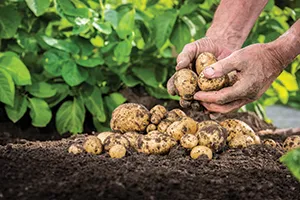Undergraduate Studies

Students enrolled in the Agricultural Biotechnology are offered the opportunity to study in a lab-intensive multidisciplinary program that provides excellent practical experience with special emphasis on issues, research, and courses related and relevant to agriculture and biotechnology.
Students study selected topics in biology, chemistry and economics that will allow them to function in agriculture and its accompanying sectors including government, policy development, farm production, environment, and agricultural sciences. Agricultural Biotechnology allows students the opportunity to study the life sciences with special emphasis on the application of biotechnology in agriculture.
Skills Acquired
In addition to developing exceptional communication skills, you will develop critical and analytical problem-solving skills, research and information management skills and improve your attention to detail. You will leave the program with a strong ability to summarize research findings, excellent fieldwork and risk assessment techniques, as well as an in-depth knowledge of environmental issues. You will gain an understanding of economics at an individual and global scale. You will be familiar with basic technologies and tools commonly used in Chemistry, Biochemistry, Physics and Mathematics.
Professional Disciplines
Your Bachelor of Science in Agricultural Biotechnology provides an excellent foundation for work in Environmental Law, Management or the Veterinary Sciences.
Career Prospects
Here are just a few of the options potentially open to you once you’ve earned your degree:
- Plant Pathology
- Immunology
- Medicine
- Agricultural Engineering
- Cellular Biology
- Farm Consulting
- Animal Science
- Rangeland Evaluation & Management
- Agrology
- Sales & Business
- Resource Economy
- Entomology
- Horticulture
- Forestry
- Animal Health Inspection
- Agronomy
- Water Resource Management
- Pest Management & Biocontrol
- Environmental Sciences
- Waste & Compost Management
